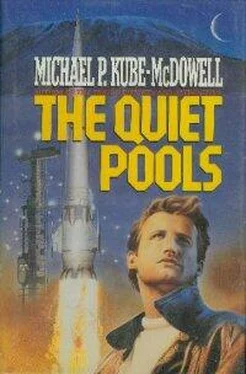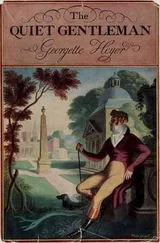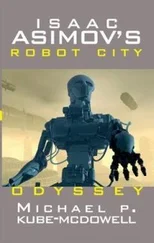His father cocked his head. “Do you think so? Does that make sense to you?”
Again, he was suddenly ten, but this time he squirmed uncomfortably at the familiarity of the moment—drawn by his father into a duel of wits, stopped and subjected to a surprise oral exam. It could happen at any time. It had happened many times.
“Each generation went as far as its will would carry it,” said Christopher. “Sons and daughters crossed the barriers that had stopped their parents.”
“But they didn’t all go. That’s the puzzle. Some stayed to make a life. Do you think that those who left were any happier, burned any brighter?”
Christopher’s back was still up. “Probably they lived harder lives. I imagine some lived shorter lives. You’d have to ask them if they were happier.”
William McCutcheon shook his head. “ You ask them, Christopher. You ask them if you get the chance. Aren’t they there with you in Houston? Isn’t that what the Diaspora is about? Aren’t they one and the same?”
“Something like that,” Christopher said lightly, unwilling to launch into a justification of the Project. “Except wagons are more expensive now.”
His father did not smile. “Much more. And we all have to pay for them.”
The conversation stumbled after that, and shortly Christopher escaped to his waiting work. But he was left puzzled and unsettled. It was the most curious conversation he could remember having with his father.
William McCutcheon was not comfortable with what most people called chatting—except with strangers, which was another matter entirely—and so he rarely bothered with it. When he spoke, he made speeches, conducted interrogations, issued demands, offered critiques.
None of the above . Christopher recalled his father’s face from the capture queue to the display and stared at it. Why did you call ? he asked the frozen image. Why did you have to invade this space, too? To ask my opinion? To take my pulse ?
The sudden thought that William McCutcheon might be lonely prompted a curious state of wonder. Mystery of mysteries, could it be you actually miss me ?
Christopher found himself growing angry without quite being certain why. He wanted to call his father back and say, Don’t change the rules now, goddammit. Everything else is breaking out of its box. You can fucking stay in yours. Don’t make me care .
But it was too late. He already knew that something was wrong.
It explained so much—his father’s purposeless persistence, the odd emotional tone of the call. William McCutcheon would not be one to easily acknowledge a problem or admit to his own needs and weaknesses.
But it left unanswered the question of what was required of Christopher—what he was now bound to do.
One more problem to deal with, one more demand on his energy. As if there weren’t enough. Someone else who wanted something from him. Someone else claiming a piece of him. And even though the claim was legitimate, Christopher rebelled.
After all, what if he were wrong? Wouldn’t that be an amusing spectacle? No more foolish feeling than to try to hug someone who neither invited nor welcomes the embrace—
The decision was made. Did his father need him? He could not cope if it were so, and so he chose to believe it was not.
He would do nothing.
Eric Meyfarth looked up from his desk as Christopher entered the office. “Do you mind if we get out of here?” he asked, rising out of his chair. “I’m getting a bit claustrophobic.”
Surprised, Christopher agreed. He followed Meyfarth down a back corridor into the floor’s private section, where they commandeered an express elevator.
“Otis—Sky Room,” said Meyfarth. The doors closed, and the arty leaned against the back wall. “How are things at home?”
“It’s like being a bachelor with roommates.”
“Jessie and Loi are closing you out?”
“I don’t think it’s them,” Christopher said, shaking his head. “I think it’s me.”
“Oh?”
“I just can’t be the same with them.” He glanced at the display. “Where are we going?”
“The nearest spot that feels as little like an office as possible.”
“Sky Room,” said the elevator, and the doors opened.
“Here we go,” said Meyfarth, leading the way out.
The top level of the Matador Building was a climoglas-enclosed forest micropark, complete with birds and bubbling water. Narrow paths led to private seating nooks. The air was slightly humid and carried the mixed scents of life.
“This is nice,” said Christopher, craning his neck as he looked up toward the heat-blocking roof panels twenty meters overhead. The tallest trees nearly brushed them.
“Very expensive, very wasteful,” said Meyfarth. “About eight percent of my lease payments go to maintain it. That’s about fifteen dollars out of every appointment, if you’re interested. I try to make sure I log my share of use. Anything like Oregon?”
“Just the smells.”
They found an empty nook on the east side of the densely planted greenyard.
“You don’t have any contact with your host mother, is that right?” asked Meyfaith.
“No. Not since I finished school.”
“How did that happen?”
“She’s on Sanctuary,” Christopher said with a touch of impatience. “I don’t have a lot of choice about it. I can’t even call her. She had to call me.”
“I understand that. Do you have any clue to why she stopped?”
“No. Is this important?”
“I was just refreshing my memory,” said Meyfarth. “What does your father think about what’s happening with your family?”
“He doesn’t know.”
“Really? When was the last time you talked to him?”
“This morning.”
Meyfarth cocked his head quizzically. “So you chose not to tell him.”
“It’s not his problem. There’s nothing he could do to help. So there’s really no reason to bring him in.” Christopher looked away and frowned. “Besides, it’s just not something we McCutcheons do. It took him two months last year to get around to mentioning that an aunt of mine was dead.”
“Forty percent answer, Christopher.”
“I know. I really don’t want to talk about my father just now.”
“Guessing now—you didn’t tell him because he has a rooting interest.”
“Not that he’ll admit to,” Christopher said. “But it’s true, I don’t want to have to deal with his reaction on top of everything else. He’s not fond of Loi.” That was diluting the truth; the two were stone and storm. “I suppose he’d be happy to see me break with her and solo with Jessie.”
“Which isn’t what you want.”
“No.”
“Have you any idea why he feels that way?”
“I really don’t know what he feels or why he feels it,” Christopher said irritably. “Does this have a point?”
Meyfaith frowned. “Define your problem, Christopher.”
“Look, there’s a lot of old history there, and I don’t much want to relive it,” Christopher said, exasperation tingeing his voice. “The, ah—the emotions are still a bit confused.”
“Did you quarrel often?” Mey faith asked quietly.
A wistful look crept onto Christopher’s face. “No. Not quarrel.” He smiled, and the smile was eloquently bittersweet. “I didn’t see enough of my father that I could afford to get angry with him.”
The words seared his throat, stabbed deep into his chest. He was caught by surprise by his own thoughts. It was as though the words had leaped from his subconscious directly to his lips. Christopher looked plaintively at Mey faith and found the arty’s expression of empathy as distressing as the revelation itself. Rising, he walked to the edge of the nook, pretending interest in the plant identifier on a small pedestal there.
Читать дальше

![Nick Cracknell - The Quiet Apocalypse [= Island Zero]](/books/28041/nick-cracknell-the-quiet-apocalypse-island-zero-thumb.webp)










